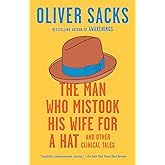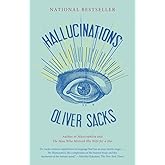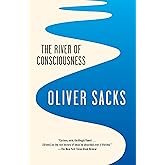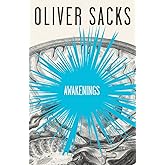
Amazon Prime Free Trial
FREE Delivery is available to Prime members. To join, select "Try Amazon Prime and start saving today with FREE Delivery" below the Add to Cart button and confirm your Prime free trial.
Amazon Prime members enjoy:- Cardmembers earn 5% Back at Amazon.com with a Prime Credit Card.
- Unlimited FREE Prime delivery
- Streaming of thousands of movies and TV shows with limited ads on Prime Video.
- A Kindle book to borrow for free each month - with no due dates
- Listen to over 2 million songs and hundreds of playlists
Important: Your credit card will NOT be charged when you start your free trial or if you cancel during the trial period. If you're happy with Amazon Prime, do nothing. At the end of the free trial, your membership will automatically upgrade to a monthly membership.
Buy new:
-11% $16.95$16.95
Ships from: Amazon.com Sold by: Amazon.com
Save with Used - Very Good
$8.35$8.35
Ships from: Amazon Sold by: The Abbey Book Cellar

Download the free Kindle app and start reading Kindle books instantly on your smartphone, tablet, or computer - no Kindle device required.
Read instantly on your browser with Kindle for Web.
Using your mobile phone camera - scan the code below and download the Kindle app.



 Audible sample
Audible sample An Anthropologist On Mars: Seven Paradoxical Tales Paperback – Illustrated, February 13, 1996
Purchase options and add-ons
Here are seven detailed narratives of neurological patients, including a surgeon consumed by the compulsive tics of Tourette's syndrome unless he is operating; an artist who loses all sense of color in a car accident, but finds a new sensibility and creative power in black and white; and an autistic professor who cannot decipher the simplest social exchange between humans, but has built a career out of her intuitive understanding of animal behavior.
Sacks combines the well honed mind of an academician with the verve of a true storyteller.
- Print length327 pages
- LanguageEnglish
- PublisherVintage
- Publication dateFebruary 13, 1996
- Dimensions5.12 x 0.77 x 7.94 inches
- ISBN-100679756973
- ISBN-13978-0679756972
Book recommendations, author interviews, editors' picks, and more. Read it now.
Frequently bought together

Customers who viewed this item also viewed
Editorial Reviews
Amazon.com Review
The stories in An Anthropologist on Mars are medical case reports not unlike the classic tales of Berton Roueché in The Medical Detectives. Sacks's stories are of "differently brained" people, and they have the intrinsic human interest that spurred his book Awakenings to be re-created as a Robin Williams movie.
The title story in Anthropologist is that of autistic Temple Grandin, whose own book Thinking in Pictures gives her version of how she feels--as unlike other humans as a cow or a Martian. The other minds Sacks describes are equally remarkable: a surgeon with Tourette's syndrome, a painter who loses color vision, a blind man given the ambiguous gift of sight, artists with memories that overwhelm "real life," the autistic artist Stephen Wiltshire, and a man with memory damage for whom it is always 1968.
Oliver Sacks is the Carl Sagan or Stephen Jay Gould of his field; his books are true classics of medical writing, of the breadth of human mentality, and of the inner lives of the disabled. --Mary Ellen Curtin
From Publishers Weekly
Copyright 1996 Reed Business Information, Inc.
From the Inside Flap
About the Author
Product details
- Publisher : Vintage; Illustrated edition (February 13, 1996)
- Language : English
- Paperback : 327 pages
- ISBN-10 : 0679756973
- ISBN-13 : 978-0679756972
- Item Weight : 12 ounces
- Dimensions : 5.12 x 0.77 x 7.94 inches
- Best Sellers Rank: #41,672 in Books (See Top 100 in Books)
- #46 in Medical Neuropsychology
- #77 in Popular Neuropsychology
- #127 in Medical General Psychology
- Customer Reviews:
About the author

Oliver Sacks was born in 1933 in London and was educated at Queen's College, Oxford. He completed his medical training at San Francisco's Mount Zion Hospital and at UCLA before moving to New York, where he soon encountered the patients whom he would write about in his book Awakenings.
Dr Sacks spent almost fifty years working as a neurologist and wrote many books, including The Man Who Mistook His Wife for a Hat, Musicophilia, and Hallucinations, about the strange neurological predicaments and conditions of his patients. The New York Times referred to him as 'the poet laureate of medicine', and over the years he received many awards, including honours from the Guggenheim Foundation, the National Science Foundation, the American Academy of Arts and Letters, and the Royal College of Physicians. In 2008, he was appointed Commander of the British Empire. His memoir, On the Move, was published shortly before his death in August 2015.
Customer reviews
Customer Reviews, including Product Star Ratings help customers to learn more about the product and decide whether it is the right product for them.
To calculate the overall star rating and percentage breakdown by star, we don’t use a simple average. Instead, our system considers things like how recent a review is and if the reviewer bought the item on Amazon. It also analyzed reviews to verify trustworthiness.
Learn more how customers reviews work on AmazonCustomers say
Customers find the book interesting and enthralling. They appreciate the deep insights into human nature and the quest to understand mental health. The stories are described as fascinating, inspiring, and well-told. Readers praise the writing style as eloquent and thoughtful. They describe the world in unique perspectives and exquisite detail. The book arrives in pristine condition and is considered a must-read for anyone in the science and psychological fields.
AI-generated from the text of customer reviews
Customers find the book interesting and engaging. They describe it as an eye-opener for those in science or psychology fields. The stories are described as page-turners, and students are impressed by them.
"...The story of the Last Hippy is a fascinating and sad story of a man who was though to be undergoing enlightenment by the Hare Krishna cult he was..." Read more
"...than others, but all cases were very personal, making them very interesting to read. I enjoyed Oliver Sacks' writing style...." Read more
"...and punches holes in the dining room walls of his house, are all fascinating, perceptive, and eloquently written...." Read more
"...All of the stories are really page turners and I literally couldn't put this or its prequel (man who mistook his wife for a hat) down till I had..." Read more
Customers find the book provides deep insights into human nature and mental health. They appreciate the author's unique combination of expertise in neurology, philosophy, history, and musicology. The book shares personal stories of real people dealing with various disorders.
"...each detailed chapter on a `unique' individual with a precise description of symptoms, a detailed historical analysis of the condition and most..." Read more
"...Oliver Sacks does a fantastic job of providing insight into each individual's life, insight you would not get from reading traditional books on..." Read more
"...Sacks has a great eye for the details that make his characters interesting; his descriptions of his patients bizarre behavior are spot on...." Read more
"...These are all stories of real people, everyday difficulties, of denial & acceptance, of the indomitable human spirit...." Read more
Customers enjoy the engaging stories in the book. They find the author a good storyteller who shares personal and clinical tales with detailed footnotes. The chapters are rich with detail, sensitivity, and studies' findings. While some found the chapter on Temple Grandin fascinating, most enjoyed the storytelling style.
"You learn so much from Dr Sacks. Inspiring stories. Needed it for my course and it arrived fast!" Read more
"...While I found the chapter on Temple Grandin fascinating, most of the rest of this book just wasn’t my cup of tea." Read more
"...Remember, it's not one continous fable, it's seven different stories. I liked most of them...." Read more
"...he is a good story teller and gives excellent histories and shares the personal part of their lives and how their various disorders impact them" Read more
Customers find the book readable and well-written. They appreciate the vivid descriptions of exceptional or rare mental and neurological conditions, as well as sufficient detail provided while traveling through personal journeys. Readers praise the author as thoughtful and meticulous.
"...I enjoyed Oliver Sacks' writing style. It appeals to readers who don't have a scientific background and are just interested in different..." Read more
"...holes in the dining room walls of his house, are all fascinating, perceptive, and eloquently written...." Read more
"...The book is well researched, very well written and very readable...." Read more
"...but I give the book five stars because Oliver Sacks is a fantastic writer." Read more
Customers find the book's views on the world unique and detailed. They describe it as a fascinating look into the minds and say the discussions are engaging.
"...the ordinary things about our brains that we take for granted, appear unique, fragile, and more special than we might have thought...." Read more
"...disorders; however, you will experience the world in seven very unique views...." Read more
"...Sacks has a great eye for the details that make his characters interesting; his descriptions of his patients bizarre behavior are spot on...." Read more
"I've always enjoyed all his books. They are very much an eye opener...." Read more
Customers appreciate the book's condition. They find it well-written with plenty of footnotes.
"...and since I only paid 25 cents (not including S&H) It is in excellent condition!..." Read more
"The typical well versed Sacks: clinical stories with lots of footnotes. I enjoyed it but would not rank it among Sacks' best works" Read more
"Arrived in three days in pristine condition! I’m very pleased with this purchase." Read more
"Great condition, awesome stories and just a great book overall." Read more
Customers appreciate the author's biography. They find the author a meticulous and fascinating writer with thoughtful books and many professional publications.
"Dr. Sacks (R.I.P.) was a superb neurologist and a meticulous, fascinating writer...." Read more
"...of Dr. Sacks's wonderful, thoughtful books and a great number of his professional publications...." Read more
"great ideas and stories, by legendary author" Read more
Customers find the book engaging and a worthwhile addition to their library. They describe Sacks as an amazing person.
"Fascinating and quirky...a typically engaging Oliver Sacks work." Read more
"Dr. Sacks was always an amazing guy." Read more
"Great Sacks! A worthy addition to any person's library. the discussions are engaging and Sack's style is brilliant." Read more
Top reviews from the United States
There was a problem filtering reviews right now. Please try again later.
- Reviewed in the United States on November 21, 2010Oliver Sacks is the master of the case study. He fills each detailed chapter on a `unique' individual with a precise description of symptoms, a detailed historical analysis of the condition and most importantly a sense of awe. This sense of awe usually comes about when the author delves in to some deep insight on what it is to be human. How a person who is made colorblind by a neurological deficiency can elucidate that we have two separate portions of our brain for seeing color, one that `sees' the light and one that turns it in to the mental model of color in our brain. This implies that much of what we see is simply a mental model of the world as other researchers have suggested. Continuing with the theme of vision, the author explores a man who is blind for his fifty plus years of life only to have his `vision' restored by a simple eye surgery. But although the newly `sighted' man can `see', he can't understand what he is seeing until he touches it first, can't understand pictures as representations of real images, can't understand the concept of space instead relating everything to the time it takes to move from point A to point B. This unique situation elucidates that learning and cognitive development are essential for how we see the world. The story of the Last Hippy is a fascinating and sad story of a man who was though to be undergoing enlightenment by the Hare Krishna cult he was involved with, but simply had a major tumor which; inhibited his memory and left him severely disabled in an institution the rest of his life. The same traits that the Krishna's valued as inward-looking, enlightenment characteristics are considered brain damage by others. This person's last memories were of the hippy days of the late sixties, so in a sense he is the last hippy. The two chapter discussion of autism, including the chapter which provides the title of the book are extremely fascinating. The author describes a few autistic individuals who can function to a high degree including a family of autistics who seem to live as if the outside world is totally alien and they are normal. Another person described is a professor with a PhD who herself feels like an anthropologist on Mars. She can never relate to people, have normal friendships or a love life because `something was going on between the other kids, something swift, subtle, constantly changing, a swiftness of understanding so remarkable that sometimes she wondered if they were all telepathic'. This description from an outsider provides a clear view of our social conventions, the non-verbal dialogue that makes us social primates. A fascinating book!
- Reviewed in the United States on July 27, 2006"Anthropologist on Mars" begins with a quote by geneticist J.B.S. Haldane - a quote that so beautifullly sums up the book's aim as to bear repeating:
"The universe is not only queerer than we imagine, but queerer than we can imagine."
Oliver Sacks's seven paradoxical tales aim at showing us just that. We are offered a mere glimpse of the neurological pluriverse and, in so witnessing, become able to appreciate just how 'queer' human nature can be.
Other reviewers have gone into great detail about the outline of each story, so I will leave that to them. What I wish to point out to prospective readers is Sack's ability, through his tales, to make the ordinary things about our brains that we take for granted, appear unique, fragile, and more special than we might have thought.
For instance, we witness two stories dealing with sight. First, we explore the case of a painter who loses ALL sense of color late in life. We also see its opposite - a blind man given sight late in life.
In the first case, we get a real sense of how integral the sense of color is for life. We watch this man describe how the world becomes infinitely duller and less interesting when all one can see is shades of gray. He is driven almost to suicide! In the next tale, we see how astonishingly hard it is to 'learn to see' and all the things the brain must do to achieve this (which becomes all the harder the older one is).
We also meet some folks who are autistic and, as such, lack the social instincts and abstraction that we who have them take for granted. Imagine, if you can, having to learn social rules (such things as body language, vocal inflection, and sense of humor) like one would learn algebra - not instinctually, but intellectually. And imagine being mystified by ideas like romantic love and the beauty of music. Temple Grandin - in the final of Sacks tales - shows us what this is like.
Through all of this, Sacks takes on the role not only of a neurologist and story teller, but of a philosopher. The philosopher takes the ordinary and puts it under a microscope to show us how breath-taking it really is. Just because most of us - the impaired call us neurotypicals - have brains that smoothly operate thus and so, does not mean that we all do. Some, like Virgil, have to work hard at seeing such basic things as 2D represntations of 3D objects. Others, like Temple Grandin, have to work at understanding the idea of sociality.
All in all, this is a stunning book that will make you think and marvel. Dare I say, if you are like me, you will never look at the human brain with quite the same lens as you did before.
Top reviews from other countries
 Arnab K ChowdhuryReviewed in India on July 3, 2022
Arnab K ChowdhuryReviewed in India on July 3, 20225.0 out of 5 stars Extraordinarily insightful
A book full of insights into the working of the human brain.
-
 taubertineReviewed in Spain on June 17, 2021
taubertineReviewed in Spain on June 17, 20215.0 out of 5 stars Leer para ampliar el horizonte psycologico.
El Sr. SACKS te enseña a respetar y a entender un poquito, el otro mundo de la psicología de personas diferentes. No te hace un experto, pero te abre nuevos horizontes de las personas descritas y analizadas. Muy interesante y para los que tengan miedo de inclusión de niños es clases "normales" una buena forma de comprender y aceptar.
-
 トクメイReviewed in Japan on June 17, 2024
トクメイReviewed in Japan on June 17, 20245.0 out of 5 stars 安価かつ新品でした。
安価かつ新品でした。
 Amy ReinhartReviewed in Canada on June 2, 2016
Amy ReinhartReviewed in Canada on June 2, 20165.0 out of 5 stars Five Stars
A wonderful book. Has made my drives to work much more reflective and engaging.
 FlaviaReviewed in Brazil on September 13, 2015
FlaviaReviewed in Brazil on September 13, 20155.0 out of 5 stars Awesome
It's an incredible book. Sacks described lovely those 7 stories and it arouses wonderful feelings. Everyone should read for hitting some prejudice!













